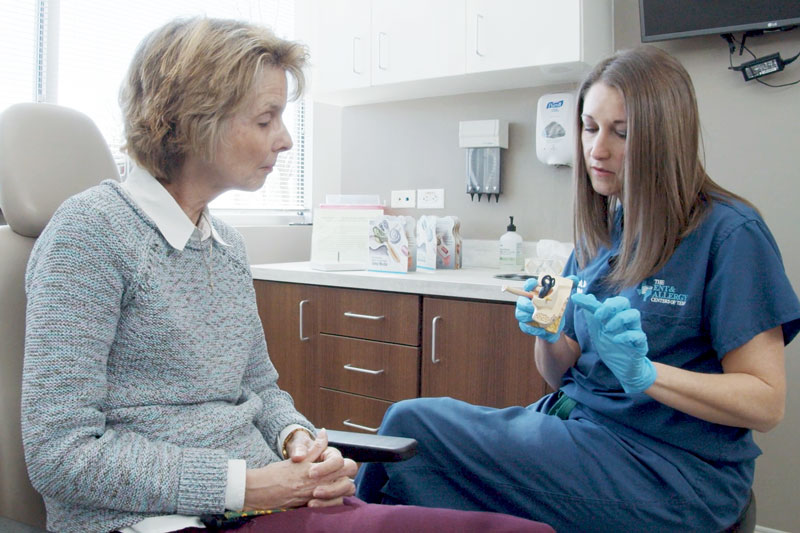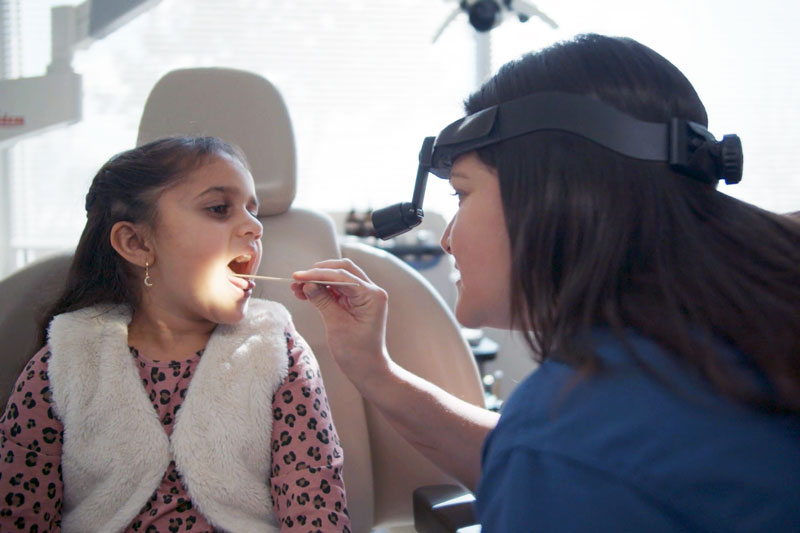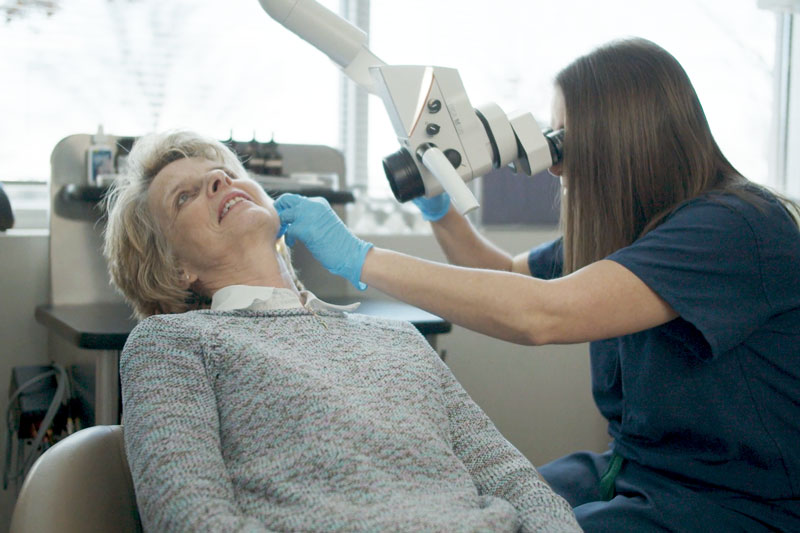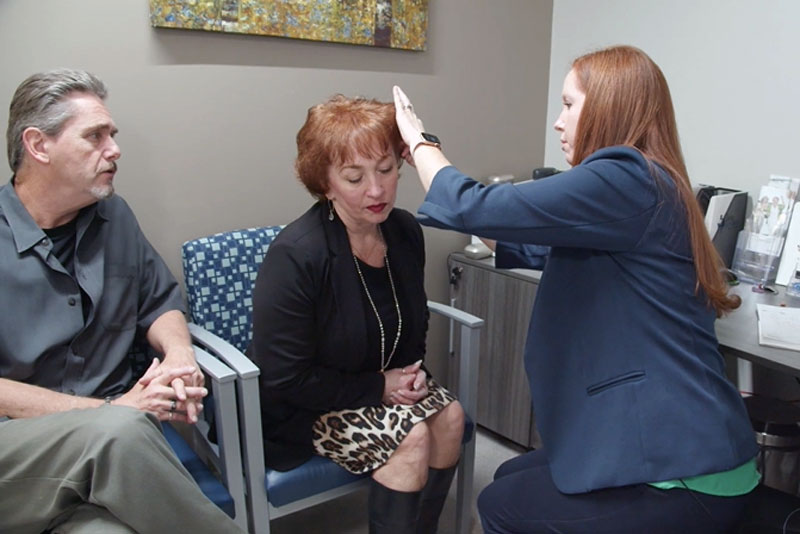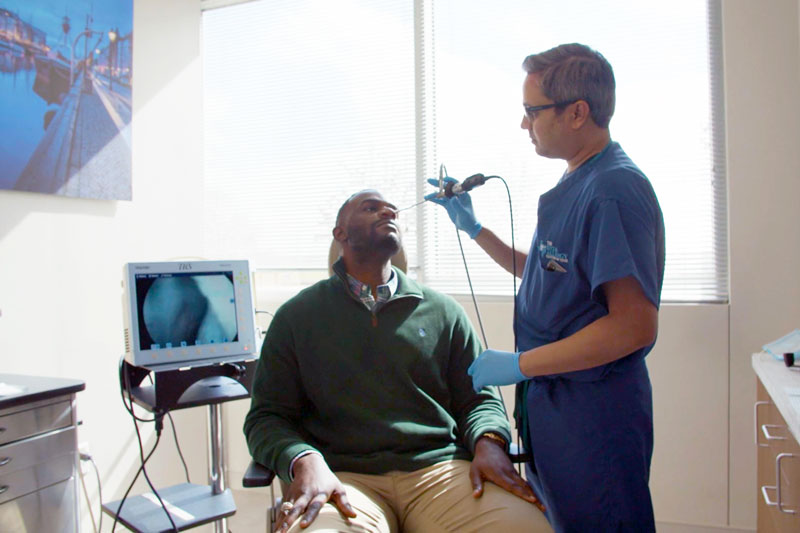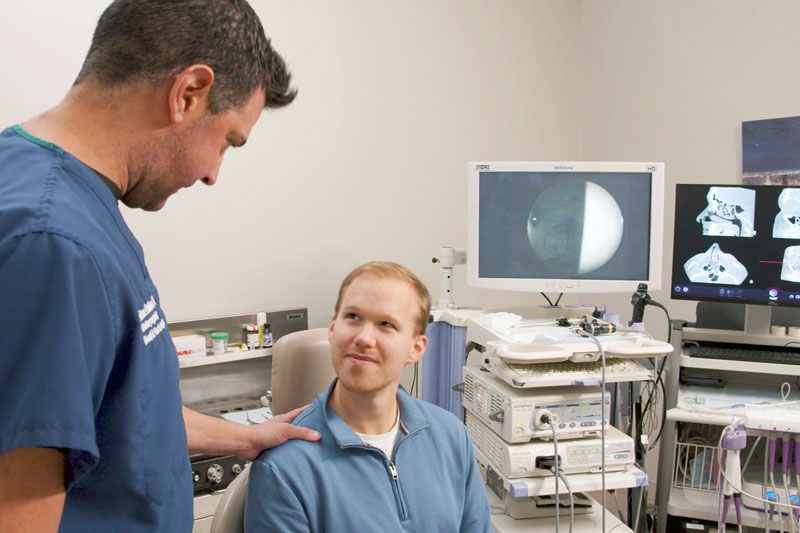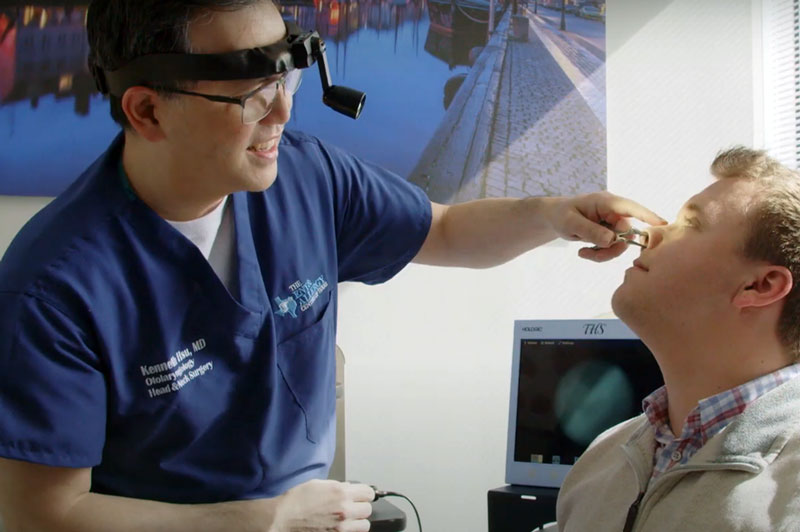Types of Skin Cancer
The three major types of skin cancer that affect the associated layers of skin are:
- Squamous cell carcinoma affects the squamous cells, which are just below the outer surface of the skin and serve as the inner lining.
- Basal cell carcinoma affects the basal cells, which lay under the squamous cells and produce new skin cells.
- Melanoma is the most serious form of skin cancer and affects the melanocytes, which produce melanin, which gives the skin its pigment.
The vast majority of head and neck cancers are non-melanoma skin cancers. Among these, basal cell carcinoma is the most prevalent type and typically emerges over time in sun-exposed regions. Although minimally invasive procedures can often quickly remove these lesions in the early stages, all cancer types carry a potential risk of metastasis or spreading to other areas. As a result, a comprehensive skin examination of the entire head and neck should always be conducted to promptly identify any abnormal changes.
What Causes Skin Cancer?
Each day, the human body undergoes a process where old skin cells are replaced with new ones through the regulation of DNA. When DNA is damaged, this natural process may be disrupted, leading to the formation of skin cancer. Tumors can develop as a result of an overgrowth of new cells or the failure of old ones to die. Exposure to ultraviolet radiation from the sun or tanning devices is a common cause of DNA damage, though genetics may also play a role in some cases where skin cancer develops in areas not exposed to sunlight.
Various risk factors can increase the likelihood of developing skin cancer, including fair skin, the presence of moles, a weakened immune system, and older age.
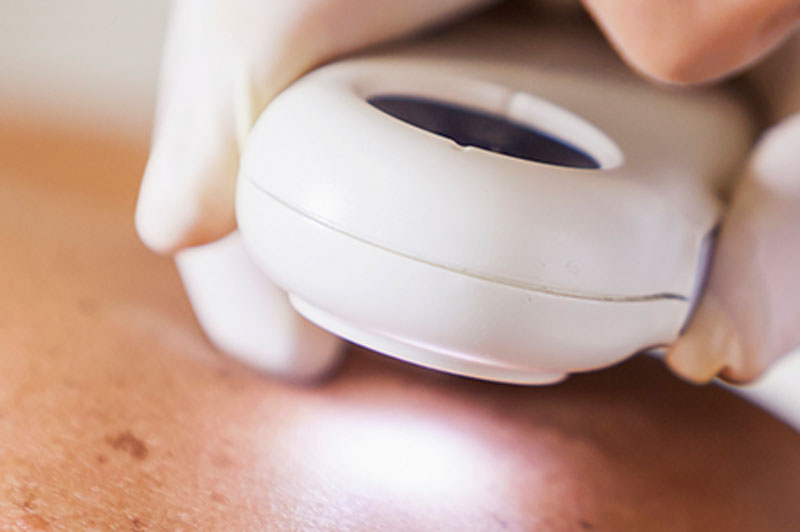
What are the symptoms of Skin Cancer?
Skin cancer is typically characterized by the development of new or altered growths on the skin, often appearing on areas frequently exposed to the sun, such as the face, scalp, ears, neck, and lips. Basal cell carcinoma commonly emerges on the face or ears, particularly the forehead, starting as a small, light-colored spot that eventually grows into a sore, possibly changing color. Squamous cell carcinoma often forms on the lower lip or ears and looks similar to basal cell carcinoma. Melanoma usually appears as a black or dark blue spot on the skin.
Noticing any changes in your skin is significant and should result in an immediate visit to your doctor. Early detection plays a crucial role in successfully treating skin cancer. To properly diagnose any suspected cancerous growths, a biopsy is performed.
Treatment Options for Skin Cancer
The method of treating skin cancer depends on the size, type, and location of the tumor. Generally, effective treatment options involve removing the entire growth Removal procedures are generally simple and can be done on an outpatient basis with local anesthesia. Two of the treatment options for skin cancer that ENTs perform:
- Excision – the abnormal tissue, as well as some surrounding healthy tissue, is cut out of the skin
- Mohs surgery – removes larger skin growths layer by layer until no abnormal cells remain to prevent damage to healthy skin
While most head and neck skin cancer treatments are effective, it is still possible for new tumors to develop. Therefore, it is crucial to adopt preventive measures and schedule regular check-ups with your doctor. In addition, conducting self-checks on all visible areas of the skin can help to detect any changes at an early stage.
Schedule a Consultation
To learn more about skin cancer and available treatment options, contact one of our offices today to schedule an appointment.


